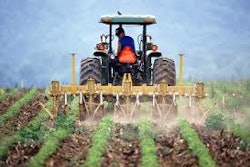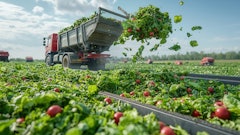As Wendy's continues to source fresh, high-quality produce, the chain announced that it will be sourcing vine-ripened tomatoes for its North American restaurants from greenhouse farms by 2019.
The tomatoes will be grown in indoor greenhouse and hydroponic farms from a dozen suppliers throughout North America. Nearly all tomatoes will be sourced from the US and Canada, giving customers the benefit of fresh tomatoes from sources that match the company's North American restaurant footprint.
"We're making this change for a variety of reasons that will benefit our customers, but taste and quality are the top factors and we are excited about the superior flavors we can achieve with this change," says Dennis Hecker, senior vice president of quality assurance for Wendy's. "Additionally, greenhouse farms provide supply predictability and quality assurance benefits—including continuity of supply; protection of crops from harsh weather; safe, indoor growing conditions and a significant reduction of chemical pesticides used on the plants."
Growing the tomatoes in greenhouses will support local economies by sustaining the agricultural workforce with fresh produce that can be grown year-round. The company believes that it will also bring economic opportunities to regions that previously have been unable to support year-round agriculture production due to geography and climate.
As Wendy's transitions to its new supply, the brand is expecting social and environmental sustainability benefits that include reduction of chemical pesticide use, safe indoor working conditions and economic benefits.

















